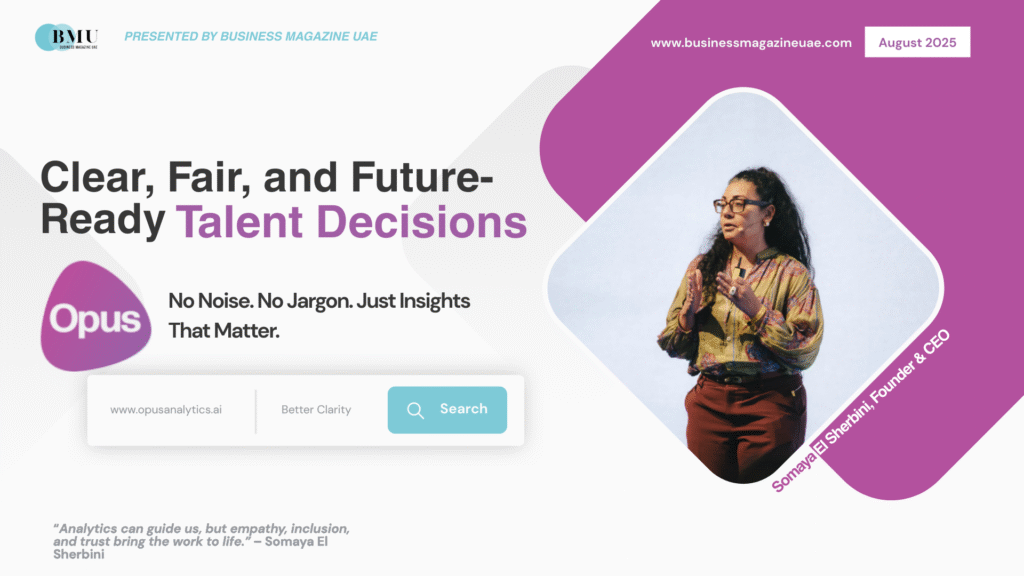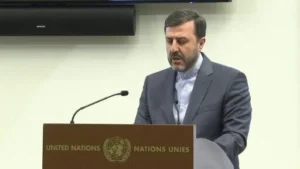
In every workplace, people decisions shape the course of a company. The right hire can drive growth. The wrong one can slow it down. A well-timed promotion can unlock potential, while a missed chance can push talent away. Leaders know these choices matter. What many lack is the clarity to make them quickly and with confidence.
The problem isn’t effort, it’s the view. Workforces today are more complex than ever. Job titles rarely capture what someone can really do. Skills shift faster than charts or systems can keep up. Career paths are no longer straight lines. And pay expectations? They change with every market turn. In all this, what leaders see is often a tangle of outdated files, scattered systems, and incomplete data.
This is the reality many executives, managers, and HR teams face. They understand the stakes, but the picture in front of them is blurred. That’s when decisions get delayed, instincts take over, and opportunities slip through the cracks.
Opus Talent Analytics was created to close this gap. Founded by Somaya El Sherbini, it helps organizations see their people with clarity. Not through piles of reports or abstract charts, but through clear and simple insights that guide action. No noise. No jargon. Just what leaders need to move forward—with confidence and fairness.
A New Way of Seeing People
Most HR systems collect data but stop there. Resumes, titles, job histories—they store the basics. What they don’t show is the story between the lines: the skills people actually use, the potential they hold, or the gaps a team will face next year.
Opus was created to fill that missing space. It gives leaders a way to see their workforce more clearly: who fits where, who could grow, and where risks are building. It’s a lens that turns complexity into something usable.
The Questions Leaders Ask Every Day
Every manager faces the same cycle of questions:
- Who should we promote?
- How do we staff this project?
- Why are people leaving?
- Are we paying fairly?
Opus focuses on these daily dilemmas. It helps leaders answer them without guesswork. Skills are mapped. Pay ranges are benchmarked. Teams are analyzed for readiness and risk. The outcome is not a report that sits in a drawer—it’s a decision taken with confidence, in the moment.
Where Data Meets Daily Work
Opus is not about dashboards for the sake of dashboards. Its strength lies in how it slots into everyday routines.
An HR director checks where retention risks are rising. A manager builds a shortlist of candidates for an open role. A learning lead scans team skill maps and assigns a training plan. A finance partner reviews pay bands before approving headcount.
Behind these use cases is serious engineering: parsing documents, cleaning data, connecting skills across industries and regions. But on the surface, the experience is simple. Leaders act faster. Teams get clarity.
The Difference in Outcomes
When clarity improves, results follow. Companies using Opus have reported:
- Retention rates improving by up to 40%
- Growth cycles speeding up by 58%
- Profitability increasing by over 72%
These shifts don’t come from one big change. They come from many small ones—fewer mis-hires, smoother internal moves, fairer pay decisions, and better timing on interventions.
From Cairo to California
Though Opus now works across Egypt, the UAE, and the United States, its roots are firmly in the Middle East and Africa. That matters. Titles vary. Career paths look different. Salaries shift with markets. Opus was shaped by these realities and carries that adaptability into new geographies.
It is built for companies of all sizes—from startups finding their first hires to multinationals steering thousands of employees. What stays constant is its role as a translator between workforce complexity and leadership clarity.
The Human Thread
For Somaya El Sherbini, data is only half the story. The rest is human.
“Analytics can guide us,” she says, “but empathy, inclusion, and trust bring the work to life.”
That principle runs through Opus. It does not replace judgment. It supports it. By combining evidence with empathy, companies create workplaces where decisions are fair, opportunities are open, and people want to stay.
Closing Reflections
The future of work is often framed in technology terms. Automation. AI. Algorithms. Opus offers another frame: clarity and fairness.
It doesn’t claim to solve every HR challenge. What it does is sharpen the daily choices that add up—who to hire, how to pay, where to grow. In the end, those choices decide whether a business thrives.
Follow Opus Talent Analytics on LinkedIn, X, YouTube & Instagram.
Visit https://opusanalytics.ai to learn more.
About the Founder & CEO: Somaya El Sherbini

Somaya El Sherbini has led people strategies across 80+ countries over a career spanning more than 25 years. She built Opus to help businesses make jobs fair, competitive, and relevant for the world ahead. Beyond her entrepreneurial role, she is also a Vital Voices Women Business Leaders Fellow, where she champions empathy and inclusion as core strengths of leadership.
Her guiding belief is clear: “When innovation and people strategies come together, organizations are empowered to achieve extraordinary success.”
Connect with Somaya El Sherbini on LinkedIn.
Also Read :-
Diving Excellence in Global Shipping Solutions with Varamar, Dubai: Niraj Mehta
Redefining Vision in Dubai’s Built Environment with FirstPoint Group: Nazir Isakhel






